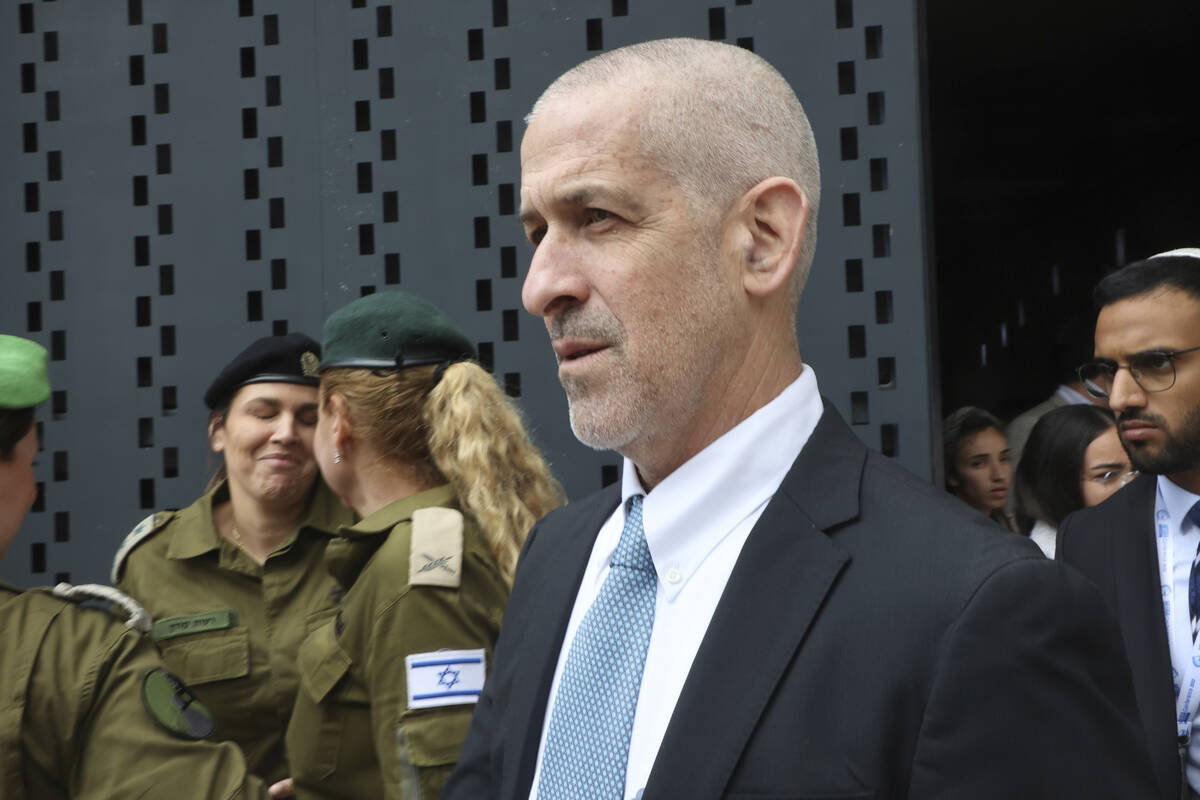Israel’s domestic security chief says he will step down in June

TEL AVIV, Israel — The head of Israel’s internal security service says he will resign in June over the failure of his agency to warn of the Oct. 7, 2023, Hamas-led terrorist attack.
Shin Bet chief Ronen Bar announced his resignation Monday, saying he will formally step down June 15.
“After years on many fronts, one night, on the southern front, the skies came down,” Bar said during remarks at a memorial event for fallen Shin Bet soldiers. “All systems collapsed. The Shin Bet also failed to give a warning.”
Prime Minister Benjamin Netanyahu moved to fire Bar last month over what he said was a crisis of confidence surrounding the Hamas-led terrorist attack.
Israel’s Supreme Court froze the firing following multiple legal challenges against it and called on the sides to reach a compromise.
In his address, Bar said the court case “is not about my personal case but about the independence of the next heads of the Shin Bet.”
He said the agency’s “proper functioning is of inestimable importance to the security of the state and to Israeli democracy. I have been fighting for this for the past month, and this week the necessary infrastructure was laid before the High Court of Justice. I hope that the ruling that will be given will ensure that the Shin Bet will be preserved as such, over time and without fear.”
The Shin Bet is responsible for monitoring Palestinian terrorist groups, and Bar has previously acknowledged his agency’s failures in preventing the Oct. 7 Hamas-led terrorist attack.
Bar follows a number of senior security figures to resign or be fired in the wake of the Oct. 7 terrorist attack — including the former defense minister and army chief.
The war began when Hamas-led terrorists attacked southern Israel on Oct. 7, 2023, killing some 1,200 people, mostly civilians, and abducting 251. Hamas is still holding 59 hostages, 24 of whom are believed to be alive, after most of the rest were released in ceasefire agreements or other deals.
Israel’s retaliatory offensive has killed more than 52,000 Palestinians, according to the Hamas-run Health Ministry, which does not say how many of the dead were fighters or civilians.
Netanyahu has vowed to continue the offensive until all the hostages are returned and Hamas is either destroyed or agrees to disarm and leave the territory. He says Israel will then implement President Donald Trump’s proposal to resettle much of Gaza’s population in other countries through what the Israeli leader refers to as “voluntary emigration.”
Palestinians say the plan would amount to forcible expulsion from their homeland.
Hamas has said it will only release the remaining hostages in return for more Palestinian prisoners, a lasting ceasefire and a full Israeli withdrawal from Gaza.
Meanwhile, Yemen’s Houthi terrorists on Monday alleged a U.S. airstrike hit a prison holding African migrants, killing at least 68 people and wounding 47 others. The U.S. military said it was investigating.
The U.S. military’s Central Command, in a statement early Monday before news of the alleged strike broke, sought to defend its policy of offering no specific details of its extensive airstrike campaign.
“To preserve operational security, we have intentionally limited disclosing details of our ongoing or future operations,” Central Command said. “We are very deliberate in our operational approach, but will not reveal specifics about what we’ve done or what we will do.”
Late on Monday night, the military said Central Command was “aware of the claims of civilian casualties related to the U.S. strikes in Yemen, and we take those claims very seriously.”
“We are currently conducting our battle-damage assessment and inquiry into those claims,” it added.